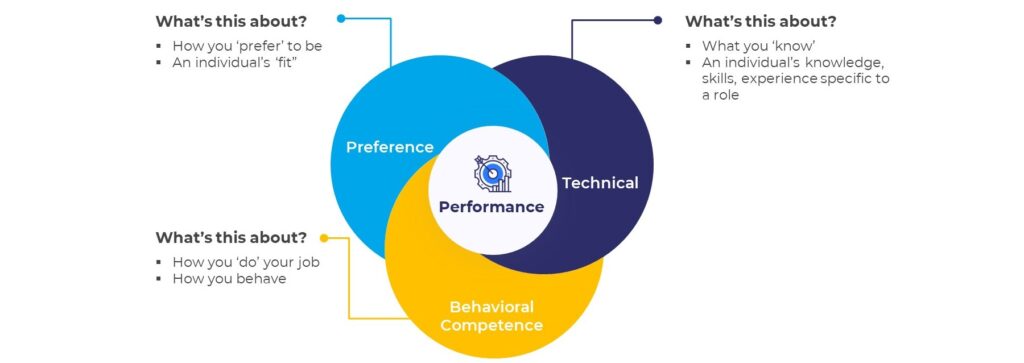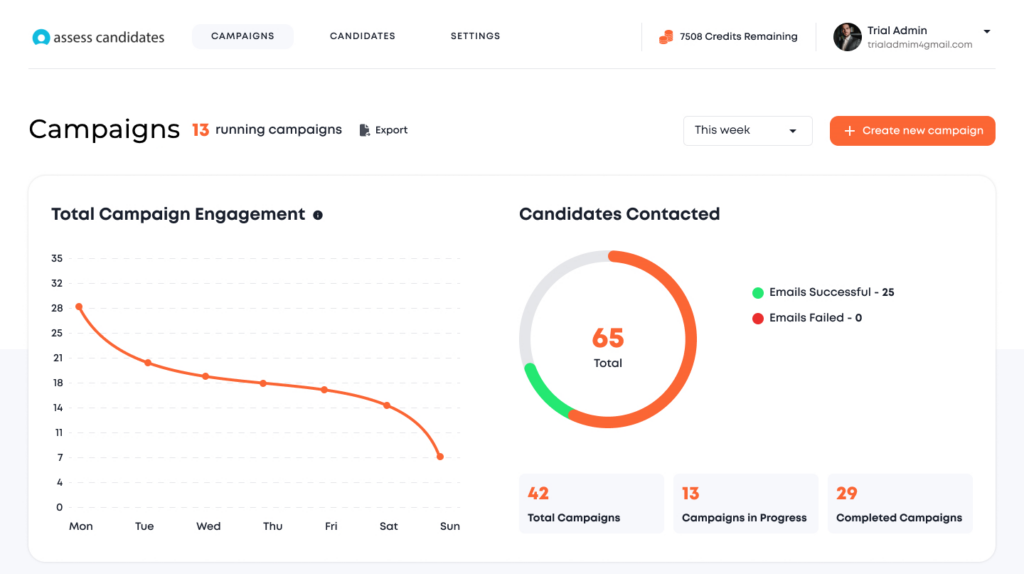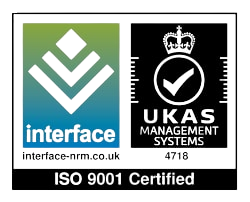Why you should use interviews along with pre-employment tests for hiring
How can organizations pinpoint the right talent amidst a sea of candidates? Traditional assessment methods, such as aptitude and personality tests, have been a standard in the industry. In recent years, video interviews have emerged – most often as a compliment, and not a substitute to assessment tests.
Beyond verbal responses, interviews allow recruiters to evaluate non-verbal cues, providing a more holistic understanding of candidates. This multilayered assessment goes beyond traditional methods, enhancing the overall accuracy of candidate evaluations. With customizable assessments and a focus on candidate comfort, video interviews pave the way for a more inclusive, efficient, and insightful hiring experience, redefining how organizations connect with top-tier talent.
Join us in this article to explore benefits and best practice for the use of video interviews together with other assessment tools.
Contents:
- What are the main assessment tools used in recruitment?
- What features make video interviews stand out in contrast to alternative assessment tools?
- What are the best strategies for integrating video interviews with other assessment tools?
- Why should you choose Assess Candidates as your video interview provider?
- FAQs and Glossary of Terms
1. What are the main assessment tools used in recruitment?
Let’s start by looking at traditional assessment tools, like aptitude and personality tests. These assessments dive into different skills and competencies, creating a comprehensive picture of a candidate’s skills and competencies. By asking candidates to go through assessment testing, hiring teams can arrive at a preselected list of candidates who indicated potential for good performance.
Now, let’s delve into the details. Read below for a detailed breakdown of different assessment tests and how they play a crucial role in shaping effective and informed hiring decisions.
5 most common assessment tests used in recruitment.
- Numerical Reasoning Tests: Evaluating Quantitative Aptitude
- Numerical reasoning tests are designed to assess a candidate’s ability to interpret, analyze, and draw conclusions from numerical data. These tests often include scenarios that require candidates to use basic arithmetic, percentages, and ratios. The primary goal is to evaluate the candidate’s quantitative aptitude and problem-solving skills in a time-sensitive environment. Numerical reasoning tests are particularly relevant for roles that involve financial analysis, data interpretation, or any position where a strong numerical skill set is essential.
- Verbal Reasoning Tests: Assessing Language Proficiency and Comprehension
- Verbal reasoning tests focus on evaluating a candidate’s proficiency in understanding and interpreting written information. These assessments measure a candidate’s ability to comprehend written passages, make logical deductions, and draw conclusions. Strong verbal reasoning skills are crucial for roles that involve effective communication, critical analysis of written materials, and decision-making based on written information. These tests help recruiters gauge how well candidates can navigate and comprehend textual information in a business context.
- Logical Reasoning Tests: Evaluating Analytical Thinking
- Logical reasoning tests assess a candidate’s ability to analyze patterns, make inferences, and draw logical conclusions. These tests often include sequences, analogies, and deductive reasoning exercises. Candidates are required to apply structured thinking to solve complex problems. Logical reasoning tests are pertinent for roles that demand strong analytical thinking, problem-solving capabilities, and the ability to approach challenges with a logical mindset. These assessments provide valuable insights into a candidate’s cognitive abilities and decision-making processes.
- Personality Tests: Understanding Individual Traits
- Personality tests aim to measure various aspects of an individual’s personality, including traits such as openness, conscientiousness, extraversion, agreeableness, and emotional stability. These assessments provide a holistic view of a candidate’s behavioral tendencies and preferences. Understanding a candidate’s personality is crucial for determining cultural fit within an organization and predicting how they may respond to different situations. Personality tests contribute to building well-rounded and harmonious teams by ensuring that individuals align with the company’s values and work culture.
80% of Fortune 500 companies are using personality tests in recruitment.
Psychology Today
- Situational Judgment Tests: Assessing Decision-Making in Real-World Scenarios
- Situational judgment tests present candidates with hypothetical scenarios related to the job they are applying for. Candidates are asked to choose the most appropriate course of action based on the information provided. These assessments evaluate a candidate’s decision-making skills, problem-solving abilities, and their capacity to handle real-world situations. Situational judgment tests are particularly valuable for roles that require sound judgment, quick decision-making, and the ability to navigate complex and dynamic work environments.

Transform your hiring with end-to-end assessments for hiring. Hire For Free
2. What features make video interviews stand out in contrast to alternative assessment tools?
Candidate experience is an increasingly important factor behind the decisions of recruitment teams to introduce new innovative ways of candidate assessment.
The reduction of phone interviews in favor of interactive video interviews and face-to-face interviews allow recruiters to delve deeper into a candidate’s personality, communication style, and problem-solving abilities through a visual and interactive medium.
This synergy between video interviews and assessment tests marks a significant leap forward, empowering hiring teams to make more informed and nuanced decisions in selecting top-tier talent.
82% of employers use virtual interviews, and 93% plan to continue to use them.
Forbes
As organizations continue to adapt to a rapidly changing hiring landscape, integrating video interviews into the recruitment process proves to be a strategic move, unlocking the potential for a more diverse, streamlined, and effective hiring experience.
Let’s analyze the reasons why video interviews stand out for innovation and efficiency in the hiring process.
Top reasons to use video interviews in recruitment.
- Geographical Flexibility: Video interviews eliminate geographical constraints, allowing candidates from anywhere in the world to participate in the hiring process. This feature opens the door to a more diverse talent pool, enabling companies to access a broader range of skills and experiences.
- Time and Cost Efficiency: Video interviews streamline the initial stages of recruitment, reducing the time traditionally spent on scheduling and coordinating in-person interviews. By minimizing travel expenses and time commitments, video interviews contribute to significant cost savings for both candidates and hiring organizations.
74% of recruiters have found that video interviews have made their job easier to interview and shortlist candidates.
SHRM
- Convenient Scheduling: Video interviews provide candidates with the flexibility to schedule interviews at times that suit their current commitments, promoting a positive candidate experience. Coordinating interviews across different time zones becomes more manageable, ensuring efficiency in the recruitment timeline.
84% of applicants complete their video job interviews within 24 hours immediately after getting the text from organizations.
Enterpriseappstoday.com
- Enhanced Candidate Assessment: Video interviews allow recruiters to assess not only verbal responses but also non-verbal cues, providing a more comprehensive understanding of a candidate’s communication skills and presence. Hiring teams can collaborate in real-time during video interviews, fostering quicker decision-making and reducing delays in the evaluation process.
Companies that use video interviews are deemed innovative by 98% of candidates.
ModernHire
- Innovative Questioning Formats: Video interviews offer the flexibility to create customized assessments, including situational questions, case studies, and job-related scenarios tailored to the specific needs of the role. Standardized questioning ensures that every candidate is evaluated on the same criteria, promoting fairness and objectivity in the hiring process.
- Candidate Comfort and Accessibility: Video interviews provide a more relaxed environment for candidates, reducing interview anxiety and allowing them to present their best selves. Candidates with accessibility needs or those facing challenges in traditional interview settings find video interviews to be a more inclusive and accessible option.
82% of hiring executives see candidate experience as important
Career Builder
- Efficient Review and Collaboration: Video interviews can be recorded, allowing for thorough review and evaluation by hiring teams. This feature is especially valuable for assessing a candidate’s performance over multiple rounds. Hiring teams can easily share feedback and collaborate on candidate assessments, fostering a more collective and informed decision-making process.
The average length of the job interview process in the United States is 23.8 days.
Glassdoor

Why interviews should be used with pre-employment tests?
Use interviews with pre-employment assessment tests to understand competencies and softer skills you typically will not measure using technical tests. Interviews are a trusted methodology grounded in decades of research, leverage these to gain a holistic picture of candidate suitability and avoid focusing on a given area too much.
Get a complete picture of your candidates with end-to-end assessments. View Plans
3. What are the best strategies for integrating video interviews with other assessment tools?
By combining various assessment tools, organizations can construct a comprehensive evaluation framework that not only identifies technical proficiency but also delves into soft skills, cultural fit, and overall candidate potential. Such an approach, however, requires well defined strategies to design a recruitment process that attracts, evaluates, and selects top-tier talent for your organization.

Let’s cover the best strategies for seamlessly integrating video interviews with assessment tools to elevate your hiring practices.
14 steps to successful hiring with video interviews.
- Define Clear Objectives: Before diving into the integration of assessment tools, establish clear objectives for each stage of the hiring process. Align these objectives with the specific skills and qualities essential for success in the role. Tailor assessments accordingly to ensure a targeted and relevant evaluation.
- Create a Sequential Assessment Plan: Design a thoughtful and sequential assessment plan that strategically introduces video interviews at specific stages. Begin with online skills assessments to gauge technical competencies, followed by personality assessments to understand behavioral traits, and culminate with video interviews to delve deeper into communication skills and cultural fit.
- Standardize Assessment Criteria: Ensure consistency in evaluation by standardizing assessment criteria across all tools. Develop a unified rubric that aligns with the core competencies required for the position. This not only fosters fairness in evaluation but also facilitates easier comparison and decision-making.
- Leverage Video Interviews for Soft Skills: Use video interviews to assess soft skills that are crucial for workplace success. Evaluate candidates’ communication skills, adaptability, and interpersonal abilities through video responses, providing valuable insights into how they may fit into the team dynamics.
89% respondents gave lack of soft skills as reason for bad hire.
- Combine Cognitive and Behavioral Assessments: Integrate cognitive assessments, such as numerical and verbal reasoning tests, with personality assessments to create a comprehensive profile of candidates. This dual approach ensures a thorough evaluation of both cognitive abilities and behavioral traits, providing a more nuanced understanding.
- Customized Assessments for Roles: Recognize that different roles demand different skill sets. Tailor assessments to the specific requirements of each position. For example, technical roles may benefit from coding challenges or technical simulations, while managerial positions may require situational judgment tests tailored to leadership scenarios.
- Utilize Video for Real-World Simulations: Capitalize on video interviews to present real-world scenarios to candidates. Pose situational judgment questions that require candidates to demonstrate problem-solving skills, decision-making, and their ability to navigate challenges relevant to the job.
- Foster Collaboration Among Hiring Teams: Leverage technology to enable real-time collaboration among hiring team members during video interviews. This collaborative approach ensures a comprehensive assessment, as multiple perspectives contribute to a more holistic understanding of a candidate’s suitability.
- Provide Clear Communication to Candidates: Transparently communicate the assessment process to candidates. Clearly outline which assessment tools will be used, the purpose of each evaluation, and the specific skills or traits being assessed. This transparency not only fosters a positive candidate experience but also allows candidates to prepare effectively.
- Incorporate Feedback Mechanisms: Establish feedback mechanisms for both candidates and the hiring team. Encourage candidates to provide feedback on the assessment process, offering insights into their experience. Similarly, gather feedback from the hiring team to identify areas for improvement and refinements.
- Embrace Technology Integration: Ensure seamless integration of various assessment tools and video interview platforms with your existing applicant tracking system (ATS) or recruitment software. This integration streamlines data management, reduces administrative burdens, and enhances overall efficiency.
78% of companies using an ATS say recruitment tech makes hiring easier than ever.
Accurate
- Train Interviewers on Assessment Techniques: Invest in training programs for interviewers to enhance their proficiency in using a diverse set of assessment tools. Equip them with the skills to extract meaningful insights from candidate interactions, ensuring a comprehensive evaluation that goes beyond surface-level assessments.
- Evaluate Impact on Diversity and Inclusion: Conduct regular assessments of the impact of integrated assessments on diversity and inclusion. Guard against biases that may inadvertently seep into the evaluation process and take corrective measures to ensure fairness and equal opportunities for all candidates.
77% of talent professionals report that diversity will be a crucial factor in the future of recruiting.
- Continuous Evaluation of Assessment Efficacy: Recognize that the recruitment landscape is dynamic, and so should be your assessment strategies. Regularly review the efficacy of your integrated assessments, gather feedback from hiring teams, and adapt your approach to align with changing organizational needs and industry trends.
4. Why should you choose Assess Candidates as your video interview provider?
Choosing Assess Candidates for your video interview hiring needs is a strategic move towards a more efficient and insightful recruitment process. Here are 5 reasons why Assess Candidates stand as your best partner for video interview hiring.
With Assess Candidates video interview platform you are guaranteed
- Interviews Rooted in Scientific Research: At Assess Candidates, our video interviews are more than just conversations; they are scientifically crafted assessments. Backed by research and validated methodologies, our interview questions delve deep into candidates’ abilities, ensuring a comprehensive evaluation of their skills and suitability for the role.
- Exceptional Candidate Experience: We prioritize the candidate journey at Assess Candidates. Our user-friendly video interview interface ensures a seamless and positive experience for candidates. From clear communication about the assessment process to intuitive platform features, we prioritize creating an environment where candidates can present their best selves, fostering a positive and lasting impression.
- Assessor Feedback: We allow multiple assessors to leave feedback on video interview reports. This enables teams to collaborate and make informed decisions based on more than just an individual’s opinion for more reliable evaluations.
- One-way Interviews: We offer several off-the-shelf video interviews for you to send to candidates at a moment’s notice. Leverage these for interviews you can trust, save time in building an interview of your own.
- Custom Interviews: If you did want to build custom interviews, this is something we also offer. This can be a good way for a more specific interview that resonates more closely with your brand and job requirements.

Example of client problem and Assess Candidates solution
Problem:
A focus on assessment methodology only led to candidates being progressed that had great technical prowess, but lacked softer skills. Teamwork in assessment centers was lacking and a poor fit to the role resulted in hires that did not stay long in the role.
Assess Candidates Solution:
Use of a blended candidate assessment methodology using assessment tests, a personality questionnaire and video interview will help enable this organization to tap into candidate preferences, technical ability and behavioral competence. By doing so, a more complete picture of a candidate’s suitability is generated for more reliable hiring decisions. Thus, a better job fit is achieved to increase the probability of candidates performing better, staying longer and remaining happier in the role.
5. FAQs and Glossary of Terms.
FAQs
- What are traditional assessment methods, and why are they important in recruitment?
- Traditional assessment methods, such as aptitude and personality tests, are crucial in recruitment for their ability to dive into different skills and competencies. By utilizing assessment testing, hiring teams can create a preselected list of candidates, indicating potential for good performance.
- Why are Personality Tests used in recruitment, and what do they measure?
- Personality Tests aim to measure various aspects of an individual’s personality, including traits like openness, conscientiousness, extraversion, agreeableness, and emotional stability. These assessments provide a holistic view of a candidate’s behavioral tendencies and preferences, aiding in determining cultural fit within an organization.
- What cost benefits do video interviews bring to the recruitment process?
- Video interviews contribute to significant cost savings by streamlining the recruitment process. They reduce the time spent on scheduling and coordinating in-person interviews, minimizing travel expenses for both candidates and hiring organizations.
- How do video interviews promote convenient scheduling for candidates?
- Video interviews provide candidates with the flexibility to schedule interviews at their convenience, aligning with their current commitments. This promotes a positive candidate experience. Additionally, coordinating interviews across different time zones becomes more manageable, ensuring efficiency in the recruitment timeline.
- In what ways do video interviews enhance candidate assessment compared to traditional methods?
- Video interviews allow recruiters to assess not only verbal responses but also non-verbal cues, providing a more comprehensive understanding of a candidate’s communication skills and presence. The real-time collaboration feature enables hiring teams to collaborate seamlessly during interviews, fostering quicker decision-making and reducing delays in the evaluation process.
- How can video interviews adapt to diverse roles within an organization?
- Video interviews offer the flexibility of customizable assessments, allowing organizations to tailor questions to the specific needs of different roles. Whether it’s situational questions, case studies, or job-related scenarios, video interviews adapt to varied job requirements, ensuring a comprehensive evaluation that aligns with the skills essential for each position.
Glossary of Terms
- Aptitude Tests: Assessments designed to evaluate a candidate’s natural ability to acquire specific skills or perform certain tasks.
- Personality Tests: Tools used to measure various aspects of an individual’s personality, helping employers understand behavioral tendencies and preferences.
- Numerical Reasoning Tests: Assess a candidate’s ability to interpret and analyze numerical data, evaluating quantitative aptitude and problem-solving skills.
- Verbal Reasoning Tests: Evaluate a candidate’s proficiency in understanding and interpreting written information, assessing critical reading and logical reasoning skills.
- Logical Reasoning Tests: Assess a candidate’s ability to analyze patterns, make inferences, and draw logical conclusions, measuring analytical thinking.
- Situational Judgment Tests: Present candidates with hypothetical scenarios, evaluating decision-making skills, problem-solving abilities, and the capacity to handle real-world situations.
